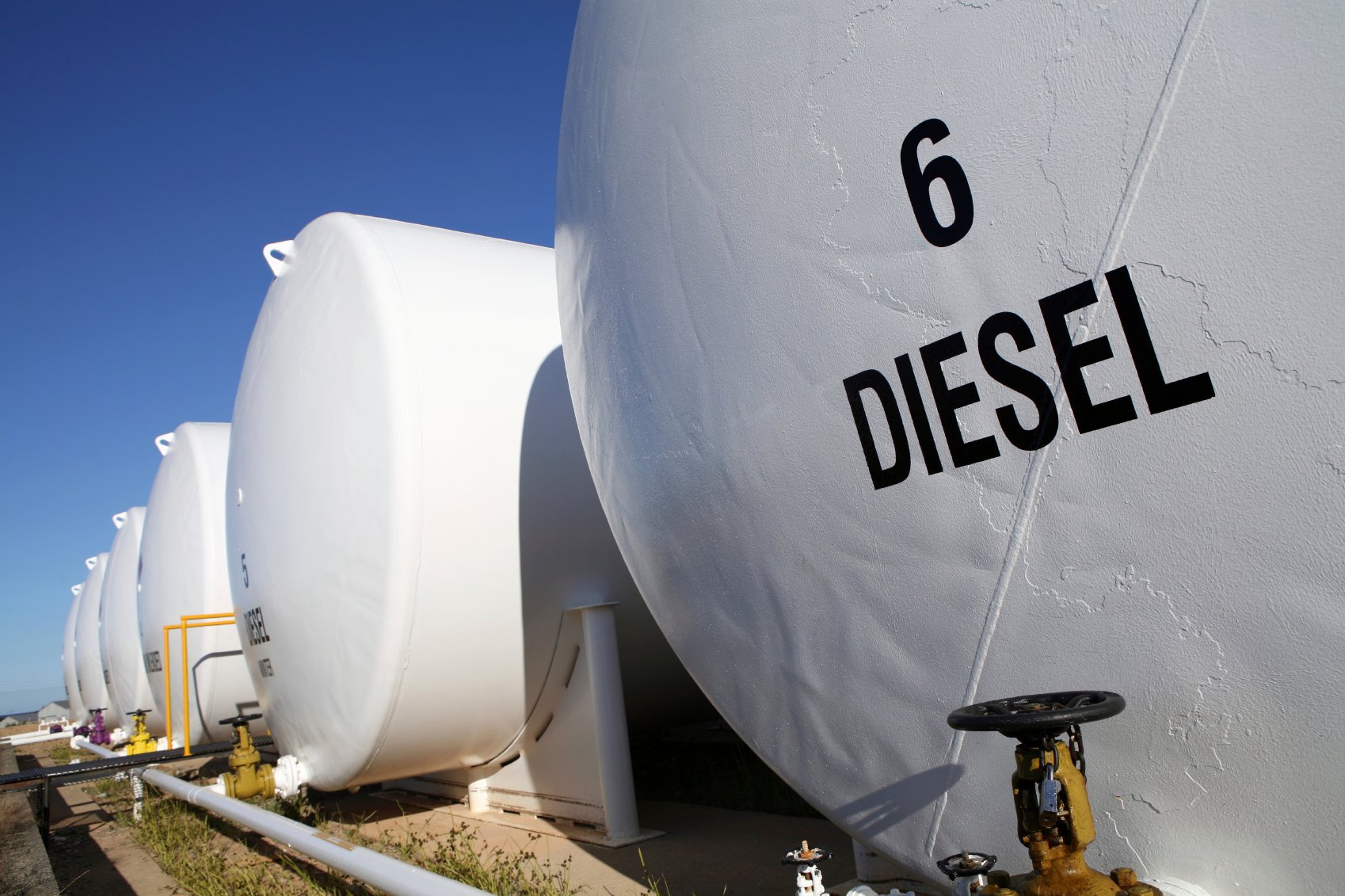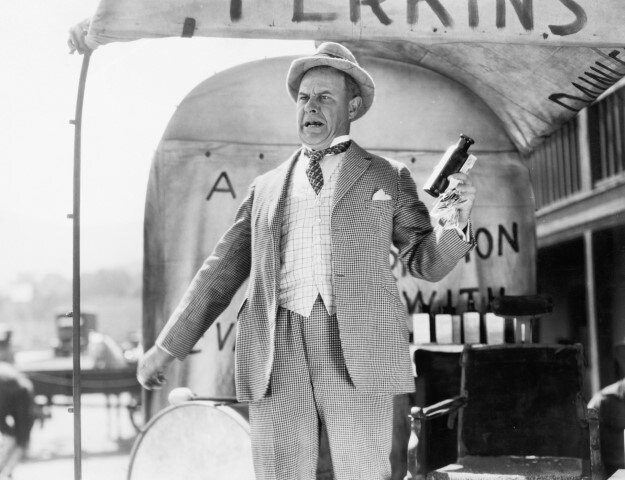Diesel Fuel Additives: Top 5 Things You Never Knew You Didn't Know
Here are 5 things you may not know about diesel fuel and the diesel fuel additives used to treat it. We like to call them "the things you never knew...
5 min read
Bell Performance : Feb 28 2013

When you were in school, you learned about the Wright Brothers, Orville and Wilbur. How they built and flew the first airplane at Kitty Hawk, North Carolina, and how it changed the world. You probably didn't learn much about Samuel Langley. His story is an interesting lesson for today.
Back around the turn of the 20th century, the quest to finally achieve manned flight was the big holy grail of the day. Everyone was trying to figure out the riddle of how it was going to work. Lots of people tried and failed. And the media of the day covered it, so it was no secret that someone was trying to crack the riddle.
 Back in the day, Langley had been on staff at Harvard before moving to become secretary of the Smithsonian. He was also one of the first people trying to figure out how to make an airplane. Some of his initial attempts seemed promising, leading the US Government to give him grants of $50,000 and $25,000 to fund his efforts. Combined with Langley's connections in academia, government and the communities of science and astronomy, he assembled a team of the best and brightest minds of the day. At the time, Langley was a national celebrity as the public was fascinated with this idea of mankind taking flight. So the New York Times followed him around, reporting on his progress while the American public ate it up, waiting for their golden boy (well, not really a boy, he was in his late 60s) to conquer the riddle of the airplane and write his place in history.
Back in the day, Langley had been on staff at Harvard before moving to become secretary of the Smithsonian. He was also one of the first people trying to figure out how to make an airplane. Some of his initial attempts seemed promising, leading the US Government to give him grants of $50,000 and $25,000 to fund his efforts. Combined with Langley's connections in academia, government and the communities of science and astronomy, he assembled a team of the best and brightest minds of the day. At the time, Langley was a national celebrity as the public was fascinated with this idea of mankind taking flight. So the New York Times followed him around, reporting on his progress while the American public ate it up, waiting for their golden boy (well, not really a boy, he was in his late 60s) to conquer the riddle of the airplane and write his place in history.
In late December 1903, word broke around the country that the riddle had been solved and manned flight had finally been achieved. It actually happened on December 17th, but the New York Times didn't report it until a few days later because it wasn't Langley who did it. It was a couple of unknown guys who owned a bicycle shop in Dayton, Ohio. The Wright Brothers.
How is it that the Wright Brothers managed one of the pivotal achievements that changed the course of human history, while Langley failed? It's a good question with some interesting answers.
On the one hand, you have a national celebrity with a long background in academia and government stretching back forty years to just after the Civil War ended. Someone with virtually unlimited funding and the support and backing of the full United States Government. Someone with access and connections to the smartest people of his day to figure out any problem. If he had a problem, he could call up Andrew Carnegie or the President of the United States.
Think of it like Bill Gates deciding he wanted to build the first Star Trek-style teleporter. Imagine the US government telling him "whatever you need, it's yours". Bill Gates could assemble a team of the best Nobel Prize winners of the current day. Social media, CNN and Fox News would be tracking Bill Gates' progress every day. You'd think it's only a matter of time before Bill Gates builds a teleporter and changes history (Star Trek sponsored by Microsoft?).
But Langley missed out. He wasn't the one who figured it out and changed history. Yet, Orville and Wilbur Wright didn't quite have all the things that Langley had.
They had no money - they had to fund their inventing efforts with whatever they made from their bicycle shop in Ohio.
The best and the brightest? Of the people they could find who wanted to help, there were no doctorates or masters degrees in science and engineering. In fact, none of them even had a college degree. Not even the Wright Brothers themselves.
Fame? They were so unfamous, nobody even knew they had flown an airplane until days after it happened. The New York Times and CNN and Fox News were most definitely not following them around.
Samuel Langley had no obstacles to the goal. The Wright Brothers had every obstacle. But they are the ones we learned about in school, while Samuel Langley is not (though they did name Langley Field after him).
What we learn from this interesting history lesson is that the Wright Brothers were in it because they wanted to achieve flight because they believed it would change the history of mankind and they wanted to leave a legacy that would improve the lives of generations after them.
Samuel Langley was in it for the fame and the fortune. We can say this because when he found out the Wright Brothers had beaten him to it, he essentially packed up his things and quit. There was no more fame and fortune to be had in becoming the one who changed history. Instead of picking himself up and determining that he would improve on what was no doubt a very crude beginning, Langley quit.
As we noted, Orville and Wilbur had none of the advantages Langley had. No money, no connections. None of the things that, even today, people think you need in order to succeed and be great. What they had was a belief in a concept greater than themselves. And this belief rubbed off on the people that they surrounded themselves with. As we said earlier, none of the people on their team had college degrees. But they all bought into the vision of the Wright Brothers and it kept them all going through the hard times they all experienced. Through all the crashes and failures. They had to take five sets of parts with them every time they went out to do test flights because that's how many times they would crash, every time. But in the end, they were the ones that succeeded, not the rich people from Harvard and Pitt.
The thing we learn from this fascinating story is that, whatever you're trying to do, people buy into what you believe, not "what you do". If you're in business making and selling things, this is an important lesson. Businesses trying to get customers are learning that the public doesn't care what they make and the public doesn't rush out and buy their stuff because the company stood on a street corner and said "we make great widgets, want to buy one?". But the public is attracted to people and companies who will let them into the story of what they believe and why they make those widgets.
If you don't really believe that, look at Apple Computer. One of the things Steve Jobs got them to do about ten years ago when he was transforming the company from an almost-failure to the biggest company in the world was change their message. Apple doesn't run commercials saying "we make computers that look great and are really well designed. Why to buy one?". No, they run commercials that say, essentially, "we believe that technology should connect you to your passions - what you value the most. And we act on what we believe by making computers and cool phones and music players that are well designed and well made. Would you like to join us?". People don't stand in line for a day to get the first iPhone because of the first message. They do because of the second.
As you know, Bell Performance makes fuel additives. You probably know that because you're here, right now. But we don't make fuel additives just to make them. What we do is an extension or a by-product of what we believe - that we're here to make the world better, that people should always get what they expect without being lied to or deceived, that aiming for excellence is one of the most important goals we can have in our lives. That's what we believe at Bell Performance and that's why we do what we do. To steal Apple's idea, want to join us?
So maybe you don't own a business. The lesson of Sam Langley and the Wright Brothers applies to lots of us in all walks of life. If you want to influence your neighbors, if you want to be better in whatever vocation you're in, and if you own or run a business and you want to do more business, it's worth thinking about the Wright Brothers and Samuel Langley. People don't buy what you do. They buy what you believe.

Here are 5 things you may not know about diesel fuel and the diesel fuel additives used to treat it. We like to call them "the things you never knew...
This is a question that under-girds a lot of the discussions about fuel additives. Do they really work? It's a fair question that's important to have...

How many fuel additives are out there? Too many to count, but there must be thousands. The fuel additive industry itself has a bad reputation;...